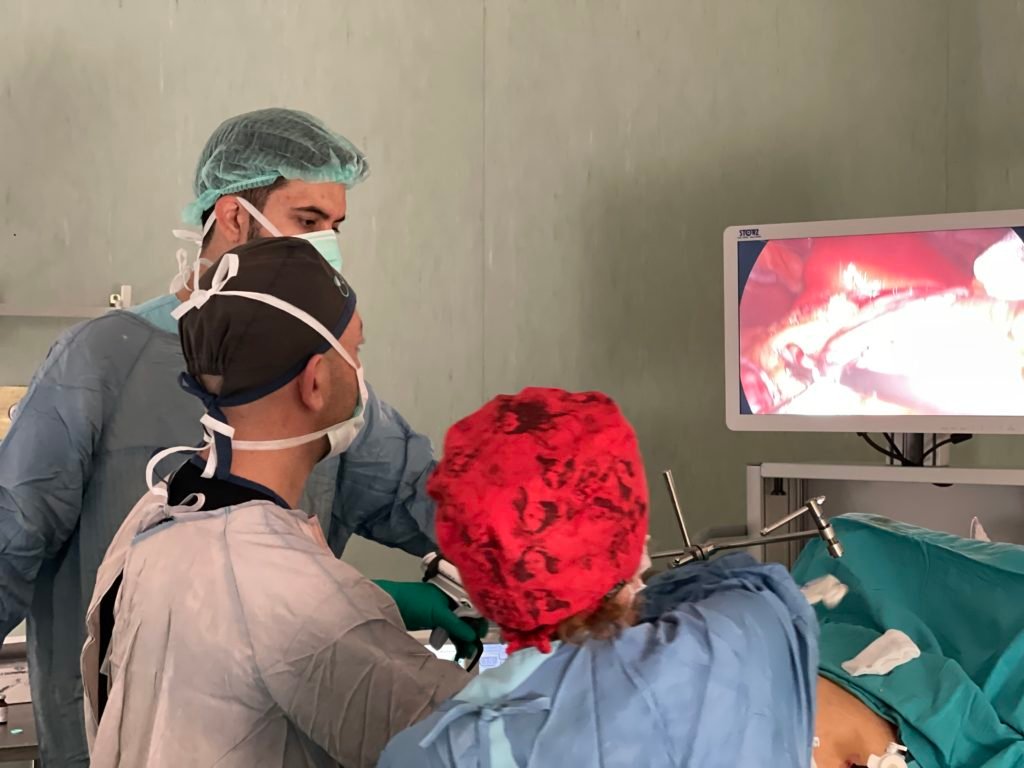Introduction
If you have undergone bariatric surgery and experienced complications or did not achieve the desired weight loss, revisional bariatric surgery might be an option for you. In this article, we will explore the reasons for weight regain after bariatric surgery and discuss the various surgical options available for revision.
Why Weight Regain Occurs After Bariatric Surgery
Bariatric surgery, such as gastric bypass, gastric sleeve, or gastric banding, is a life-changing procedure that helps individuals struggling with obesity to achieve significant weight loss. However, in some cases, patients may experience weight regain or fail to lose enough weight. There are several factors that can contribute to weight regain after bariatric surgery:

1. Inadequate Weight Loss
One common reason for weight regain is inadequate weight loss after the initial bariatric surgery. While bariatric procedures typically lead to significant weight loss, some individuals may not achieve the desired results. Factors such as non-compliance with dietary and lifestyle changes, hormonal imbalances, or underlying medical conditions can contribute to inadequate weight loss.
2. Metabolic Changes
Bariatric surgery alters the anatomy of the digestive system, which can result in metabolic changes. Over time, these changes may lead to a decrease in metabolic rate, making it easier for individuals to regain weight. Additionally, the body may adapt to the changes in the gastrointestinal tract, reducing the effectiveness of the initial surgery.
3. Stretching of the Stomach or Pouch
In some cases, the stomach or pouch created during the initial bariatric surgery may stretch over time. This stretching can result in an increased capacity for food intake, leading to weight regain. Factors such as overeating, poor dietary choices, or a lack of adherence to post-surgery guidelines can contribute to the stretching of the stomach or pouch.
4. Psychological Factors
Weight regain after bariatric surgery can also be influenced by psychological factors. Emotional eating, stress, or unresolved psychological issues can lead to a return to unhealthy eating habits and weight gain. It is important for individuals to address these psychological factors and seek support to maintain long-term weight loss.
Options for Revisional Bariatric Surgery
If you have experienced weight regain or inadequate weight loss after bariatric surgery, revisional bariatric surgery may be an option to help you achieve your weight loss goals. Here are some of the surgical options available for revision:
1. Laparoscopic Gastric Band Adjustment or Removal
If you initially underwent gastric banding surgery and are experiencing complications or inadequate weight loss, a revision surgery can involve adjusting or removing the gastric band. This can help address issues such as band slippage or band intolerance, allowing for better weight loss outcomes.
2. Conversion to Gastric Bypass or Gastric Sleeve
For individuals who have undergone gastric banding or gastric sleeve surgery and have experienced weight regain or inadequate weight loss, a revision surgery can involve converting to a gastric bypass or gastric sleeve procedure. These procedures are more restrictive and can help individuals achieve greater weight loss.
3. Stomach or Pouch Resizing
If the stomach or pouch created during the initial bariatric surgery has stretched, a revision surgery can involve resizing the stomach or pouch to restrict food intake. This can be done through various techniques, such as gastric plication or gastric imbrication, which reduce the size of the stomach or pouch.
4. Duodenal Switch
In cases of significant weight regain or inadequate weight loss after gastric bypass surgery, a revision surgery called a duodenal switch may be considered. This procedure involves further reducing the size of the stomach and rerouting the small intestine to promote greater weight loss and improved metabolic control.
5. Endoscopic Revisional Procedures
In some cases, revisional bariatric procedures can be performed endoscopically, without the need for open surgery. These minimally invasive procedures can help address issues such as pouch dilation or stoma enlargement, allowing for improved weight loss outcomes.
It is important to note that the choice of revisional bariatric surgery will depend on individual factors, such as the type of initial surgery, the underlying cause of weight regain, and the patient’s overall health. A thorough evaluation by a bariatric surgeon is necessary to determine the most appropriate surgical option.
The Importance of Proper Evaluation and Preparation
Before undergoing revisional bariatric surgery, it is crucial to undergo a comprehensive evaluation by a bariatric team. This evaluation aims to identify the underlying reasons for weight regain and determine the most suitable surgical approach. The evaluation may include:
• Physical examination and medical history review
• Nutritional assessment to identify any dietary deficiencies or issues
• Psychological evaluation to address any emotional or psychological factors contributing to weight regain
• Diagnostic tests, such as upper GI series or endoscopy, to assess the anatomy and functionality of the digestive system
Following the evaluation, patients will receive guidance and education on the necessary lifestyle changes and dietary modifications to optimize the outcomes of revisional bariatric surgery.
Recovery and Post-Surgery Care
The recovery process after revisional bariatric surgery is similar to that of the initial bariatric procedure. Patients can expect a period of healing and adjustment to the changes in their digestive system. It is essential to follow the post-surgery guidelines provided by the bariatric team, which may include:
• A gradual transition to a modified diet, starting with clear liquids and progressing to solid foods
• Regular follow-up appointments with the bariatric team to monitor progress and address any concerns
• Incorporation of regular physical activity and exercise into daily routine
• Ongoing support through bariatric support groups or counseling to help maintain long-term weight loss success
Conclusion
Revisional bariatric surgery can be a valuable option for individuals who have experienced weight regain or inadequate weight loss after the initial procedure. By addressing the underlying causes and choosing the appropriate surgical approach, patients can achieve their weight loss goals and improve their overall health and well-being. If you are considering revisional bariatric surgery, consult with a qualified bariatric surgeon to determine the best course of action for your specific circumstances.
Remember, successful weight loss is a journey that requires commitment, dedication, and ongoing support. With the right surgical intervention and lifestyle changes, you can regain control of your weight and embrace a healthier, happier future.
Disclaimer: The information provided in this article is for educational purposes only and should not be considered medical advice. It is important to consult with a qualified healthcare professional before making any decisions regarding bariatric surgery or any other medical procedure. To discuss the best options for you please contact us.

